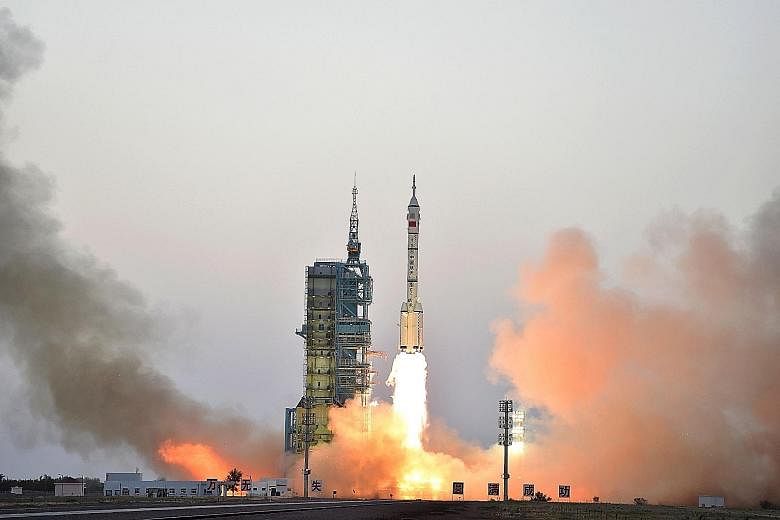BEIJING • China's space programme must help protect the country's national security, but China is dedicated to the peaceful use of space and opposes a space arms race, according to a new government policy paper.
President Xi Jinping has called for China to establish itself as a space power, and the White Paper issued yesterday chronicled its space industry since 2011 and set out major tasks for the next five years. The White Paper said the space programme was an important part of the country's overall development strategy.
Titled China's Space Activities In 2016, it is the fourth State Council White Paper on space after those issued in 2000, 2006 and 2011.
While China has tested anti-satellite missiles, in addition to its civilian aims, it has repeatedly said its space programme is for peaceful purposes. However, the US Defence Department has claimed it was pursuing activities aimed at preventing adversaries from using space-based assets in a crisis.
"China always adheres to the principle of the use of outer space for peaceful purposes and opposes the weaponisation of or an arms race in outer space," the White Paper said.
The programme must also "meet the demands of economic, scientific and technological development, national security and social progress", the White Paper added, without elaborating on the security part.
However, it included past wea- pons tests as part of the history of its space programme, in which the military has been involved.
"Over the past 60 years of remarkable development since its space industry was established in 1956, China has made great achievements in this sphere, including the development of atomic and hydrogen bombs, missiles, man-made satellites, manned space flight and lunar probes," it said.
China completed its longest manned space mission to date last month when two astronauts spent 30 days on board the Tiangong 2 space laboratory, or "Heavenly Palace 2", which China is using to carry out experiments ahead of a longer-range plan to have a permanent manned space station around 2022.
The White Paper repeated a plan to launch its first Mars probe by 2020 and to land the first probe ever on the dark side of the moon in 2018, but gave no details about a previously mooted goal of landing a Chinese person on the moon by 2036. It also said that by 2020, a BeiDou network consisting of 35 satellites will provide comprehensive navigation services worldwide.
"The White Paper sets out our vision of China as a space power, independently researching, innovating, discovering and training specialist personnel," said Mr Wu Yanhua, deputy chief of the National Space Administration.
REUTERS, XINHUA

